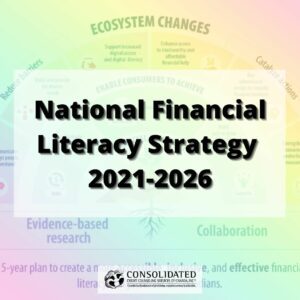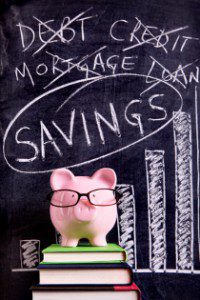Financial Literacy Month, also called FLM, is celebrated in Canada each November. This year marks the 15th anniversary of Financial Literacy Month in Canada. This national initiative is led by the Financial Consumer Agency of Canada (FCAC). It aims to strengthen the financial knowledge, skills, and well-being of all Canadians.
Theme 2025: “Talk Money”
The theme for 2025, Talk Money, emphasizes open and honest conversations about personal finance. Similar to last year’s theme, this year’s campaign also calls for Canadians to have active money conversations without judgment. From families to communities to students, everyone could benefit from having safe and open conversations about money – especially since it can help break the social stigma of discussing money matters.
The idea behind this theme is for these conversations to help people share practical advice, access financial tools and resources, and build financial confidence collectively.
The $15 Stretch Challenge
One of the new aspects of this year’s campaign is the $15 Stretch Challenge. This is a social media initiative that encourages participants to creatively manage a limited budget and then share their experiences and insights online. With their hashtags like #FLM2025 and #TalkMoney, Canadians can share their tips and strategies for budgeting, saving, and mindful spending.
Apart from this challenge, there are other ways to participate. Take one small action related to financial literacy, like checking your credit score, setting a savings goal, or creating a monthly budget. Share it with hashtags like #TalkMoney or #FLM2025.
Building financial resilience
This year’s theme is part of the larger National Financial Literacy Strategy 2021-2026: Make Change That Counts. The multiyear strategy aims for an inclusive financial ecosystem, empowering Canadians to make well-informed financial decisions. This includes making financial systems more accessible, easy to understand, and trustworthy. This can help all Canadians build financial knowledge and confidence, and eventually, long-term financial resilience.
By making financial systems more inclusive and open, people will be more comfortable making informed decisions about their money. Learning from the community at large – not just from tools or experts – elevates the conversation. It is no longer simply advice, but stories and lived experience. The hope is that these conversations can reach more people, improve financial literacy, and change their relationship with money for the better.
Supporting Tools: RDX Dashboard
Another new highlight this year is FCAC’s new RDX Financial Wellbeing Dashboard, which tracks key trends in Canadians’ financial health over time. It provides data and insights into saving habits, debt levels, and resilience indicators, helping policymakers and citizens understand real-world financial challenges and progress. People can use these insights to better understand their own financial situation and take steps to build stronger habits around saving and managing debt.
By comparing their own circumstances to national trends, people can make more proactive decisions that strengthen their overall financial well-being. The dashboard information can also help guide personal goals and decisions, making it easier to plan for long-term financial stability. In addition to the new dashboard, the FCAC also has other financial tools, resources, and calculators.
Quick tips on improving your financial literacy
- Track your spending. Whether you use digital tools or pen and paper, track your incoming and outgoing funds. This will help you understand where your money is going every month.
- Set your financial priorities. Define your needs vs wants. Focus on essential costs first. This way, you will always have money for what you need, even if you sometimes fall short of what you want.
- Review your credit score and check your credit report regularly. This can help you track opportunities for improvement and spot any errors early.
- Slowly but surely, start to build an emergency fund. Even $10 will do to start. It’s better than nothing. Start a retirement fund, and put away money in sinking funds for expected larger expenses, like a car payment or holidays. Small automatic transfers are the way to go – you likely won’t even notice it, and it’ll start adding up in the background.
- Use free resources, tools, and calculators. Explore the RDX dashboard to see national financial well-being trends.
Key takeaways
Open financial conversation can make a difference, leading to better financial decisions for more Canadians. That’s the idea behind this year’s Financial Literacy Month theme: “Talk Money”. Financial Literacy Month is a national initiative by the Financial Consumer Agency of Canada (FCAC).
Small actions can lead to bigger changes over time. Even one positive financial step – like starting an emergency fund with $10, or tracking expenses- can help build lasting habits. Free resources and inclusive programs can help all Canadians enhance their financial well-being. By participating in community challenges and conversations, Canadians can share lessons and turn financial literacy into a collective movement. Harnessing the power of community to learn from lived experiences can make this movement so much more powerful. If good money habits have been a struggle for you, the first step is to try to get out of debt. You can contact one of our trained credit counsellors for advice – they can help you figure out which debt solution is the right fit for your specific situation.





